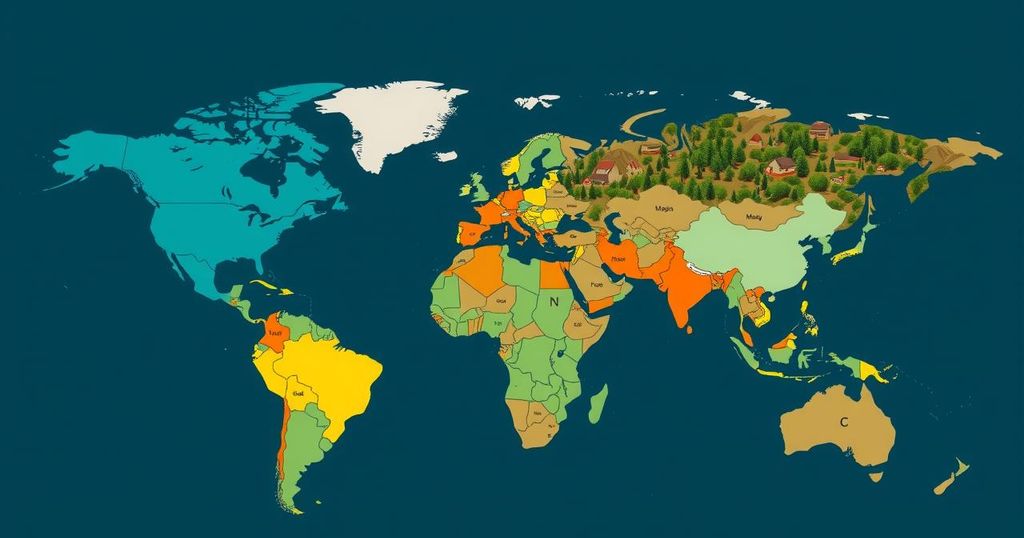The establishment of a $720 million “loss and damage” fund aims to support low-income countries, like Malawi, impacted by climate change. Cyclone Freddy highlighted the urgent need for financial assistance as these nations face increasing climate extremes. Negligible contributors to emissions, these countries plead for support from wealthier nations to aid recovery efforts, as negotiations continue at COP29 about fund implementation and distribution.
In the aftermath of Cyclone Freddy, which inundated Malawi in 2023, several families, including the Bingala household, faced devastating losses due to extreme weather conditions exacerbated by climate change. Following this calamity, Bingala received a $750 payment through the newly established “loss and damage” compensation fund aimed at assisting low-income countries disproportionately affected by climate disasters. This funding initiative, first pledging approximately $720 million from nations such as the United States and the European Union, is considered a critical step towards addressing financial burdens posed by worsening climate phenomena.
As nations convene at COP29 in Azerbaijan to deliberate on financial reparations for climate-induced damages, it is evident that existing aid efforts may not suffice given the increasing intensity of natural disasters. Leaders like Philip Davis, Prime Minister of the Bahamas, appeal to wealthier nations to acknowledge their responsibility for climate emissions and contribute significantly to the fund. Many communities, devastated by disasters, are still struggling to recover and rebuild, indicating the urgent need for robust financial support mechanisms.
The plight of impoverished nations amid climate change manifests prominently in the structural inequities influencing disaster recovery resources. Since industrial activities have significantly contributed to climate change, poorer nations suffer disproportionately despite their negligible carbon footprints. Following recent catastrophic events, there has been a concerted global effort to establish financing systems that facilitate compensation for damages incurred by climate impacts. The growing frequency and intensity of weather-related disasters necessitate immediate and effective responses, highlighting the importance of international cooperation and commitment for funding aid.
In conclusion, the establishment of the loss and damage compensation fund represents a vital step towards acknowledging and addressing the imbalances of climate change effects on low-income countries. With the anticipated escalation of climate-induced adversities, this fund may serve as a pivotal resource for recovery and resilience, while underscoring the moral imperatives for wealthier nations to support their poorer counterparts in facing escalating environmental challenges. Continuous dialogue and actionable commitments at forums like COP29 will be crucial in shaping an equitable response to climate change impacts.
Original Source: www.wrvo.org






